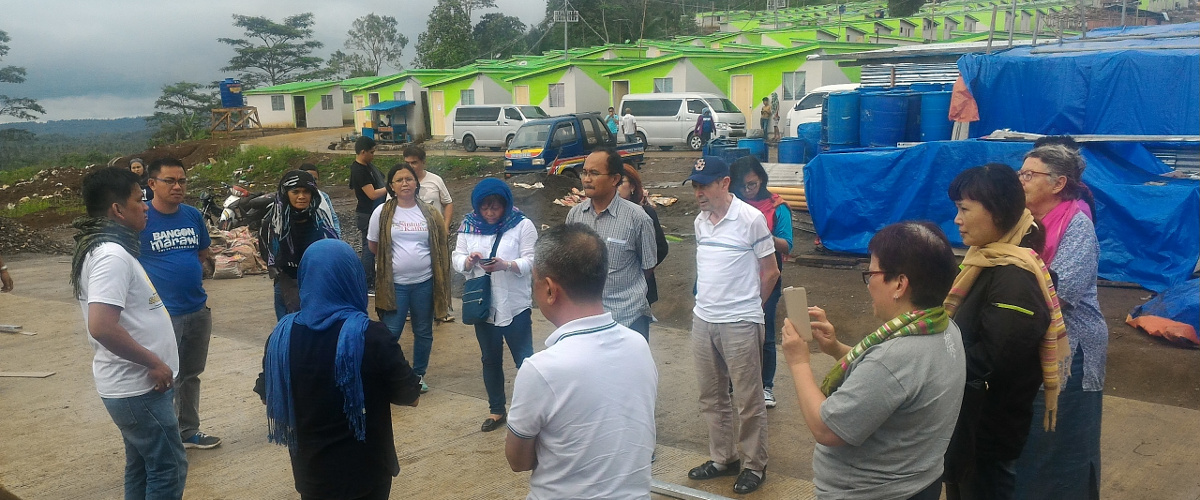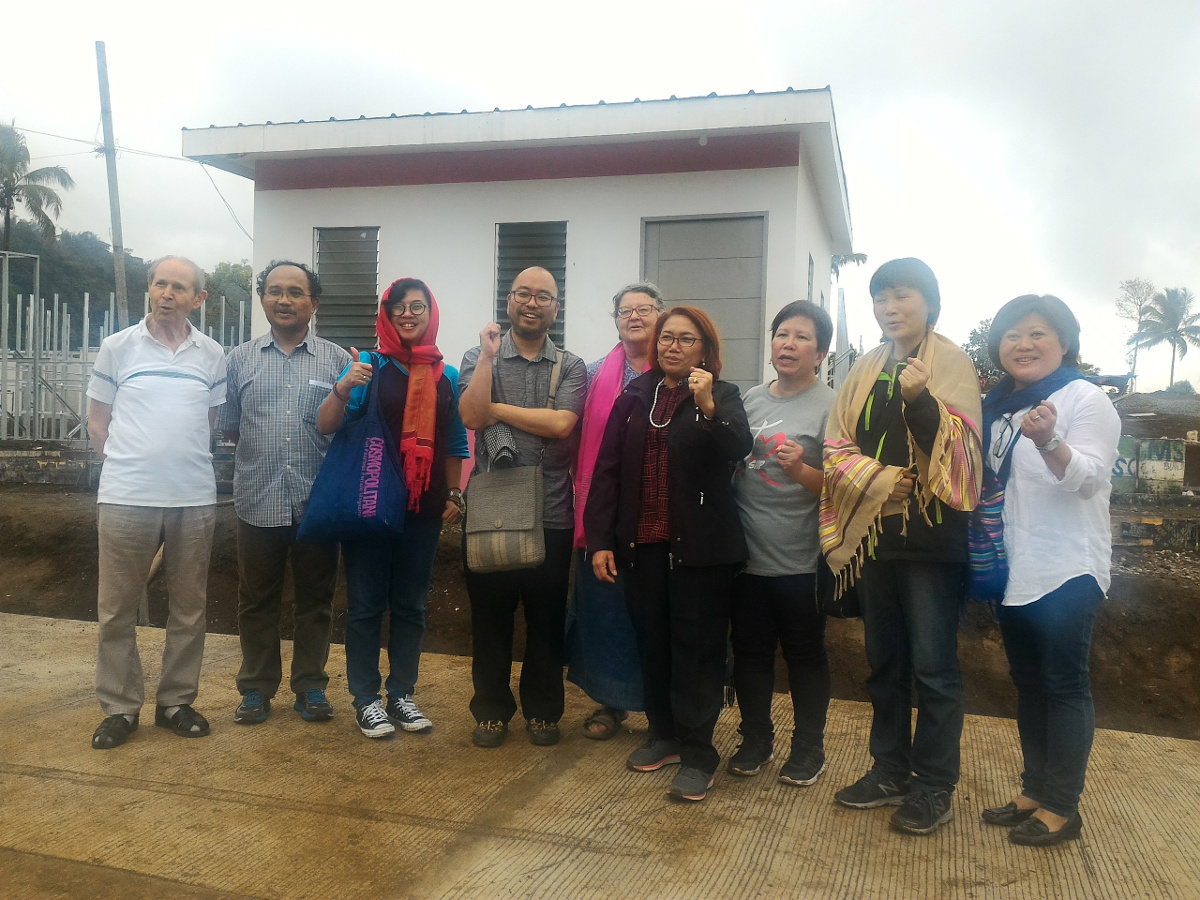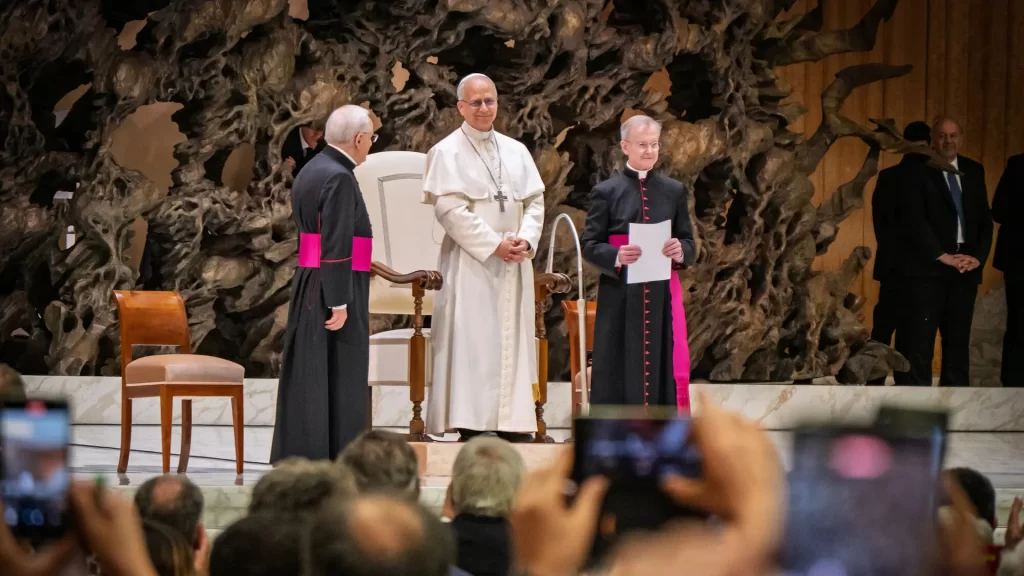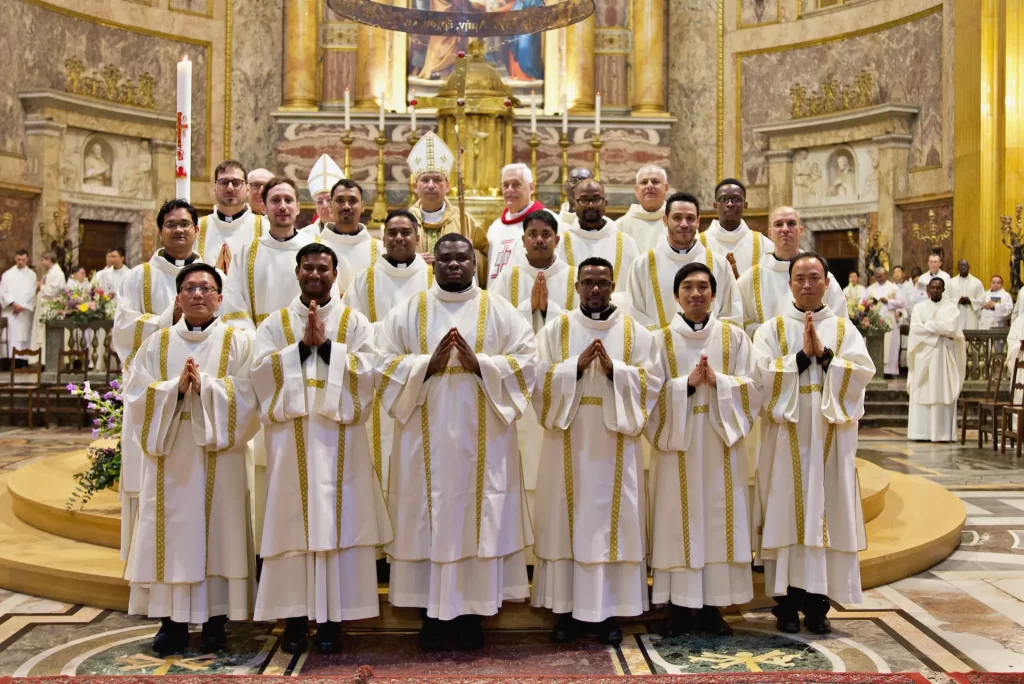
The JCAP Migration Network visits the resettlement community Xavier University is building in Marawi
It was a time of sharing but also an experience of a very real migration issue in the Philippines. As part of their annual meeting, the Jesuit Conference of Asia Pacific (JCAP) Migration Network travelled from Manila to Marawi where they visited internally displaced communities who had had to flee their homes during the conflict between government forces and terrorist groups last year.
The months-long armed conflict forcibly displaced 98 percent of the population of Marawi and reduced the city to rubble. Although the war ended six months ago, many are still living in temporary housing in nearby municipalities and cities. Reconstruction efforts are underway but it is not certain when residents in the most affected areas will be allowed to go back home.
Familiar as they are with migrant and refugee issues, the visit was an experience for the participants, who had earlier in their meeting, held from April 17 to 21, shared about the situation in their own context. Fr Isamu Ando SJ and Jessie Tayama of Tokyo Migrant Desk related how a large number of migrant workers who come from rural areas in other countries are attracted to working in Japan, risking much in order to secure better employment.

Rufina Astuti Sitanggang and Antoinette Wiranadewi of Sahabat Insan in Indonesia detailed migrant issues emerging from Indonesia as a country of origin, transit and destination, and the challenges migration brings to a people striving towards political unity.
Cambodia, too, is a country of origin and destination, while also experiencing internal migration. Sr Denise Coghlan RSM highlighted the advocacy work of Jesuit Refugee Service Cambodia, specifically in supporting refugees, stateless people with Vietnamese ethnicities and for children of migrant families.
Rerum Novarum in Taiwan provides shelter and support to victims of abuse and human trafficking. Jialing, who represented the centre, shared that they have started a programme to support fisherfolk in northern Taiwan, and they are working with the local government on various advocacy programmes.
Filipino couple Edgar Valenzuela and Tina Liamzon from the Ateneo School of Government spoke of their work with Filipino migrants in various countries and the formation programme they have developed to capacitate migrant families with skills that will help them to engage in nation-building.
There was also an update from Fr IJ Chan-Gonzaga SJ on the efforts of the migration section of the Vatican’s Dicastery for Promoting Integral Human Development. The dicastery is currently gathering information to develop comprehensive profiles of refugees and migrants, and lobbying for the Global Compact for Refugees to be discussed within bishops’ conferences.
Fr Nilo Tanalega SJ and Fr Roger Champoux SJ also spoke, respectively, on the topics of counselling migrants and understanding stress.
At the end of its meeting, the group reaffirmed its commitment to the JCAP Migration Network, keeping in mind JCAP President Fr Tony Moreno’s message to them at the start of their meeting. Fr Moreno had asked them to reflect deeply on the importance of migration in Asia Pacific. In a region that is both one of the largest sources of migration workers and also saturated with migrants, it is an imperative to ensure justice for all of them. The participants also committed to support the various projects of the member organisations, as well as to adopt systems and strategies to allow for a more dynamic network.






